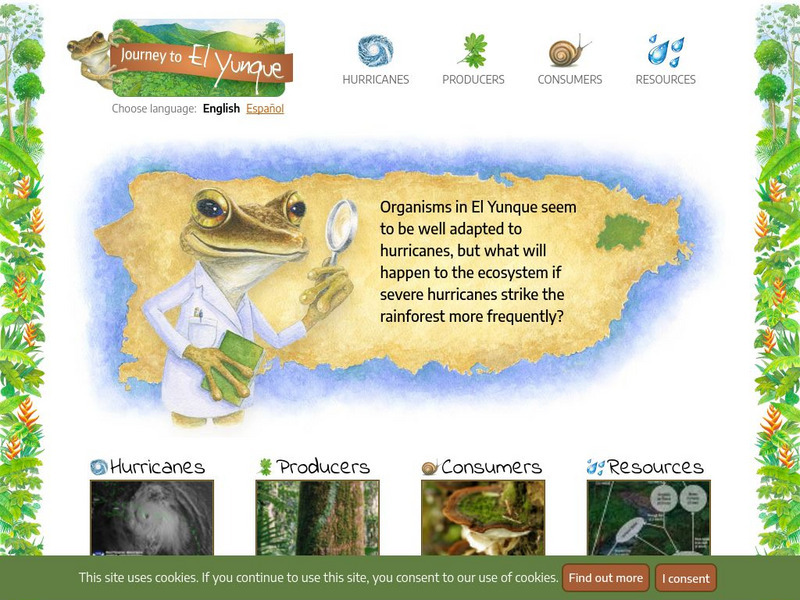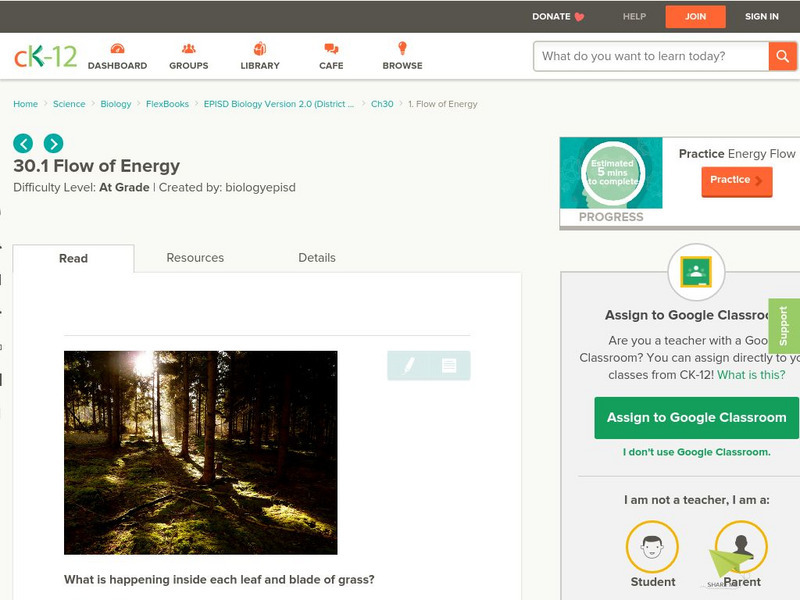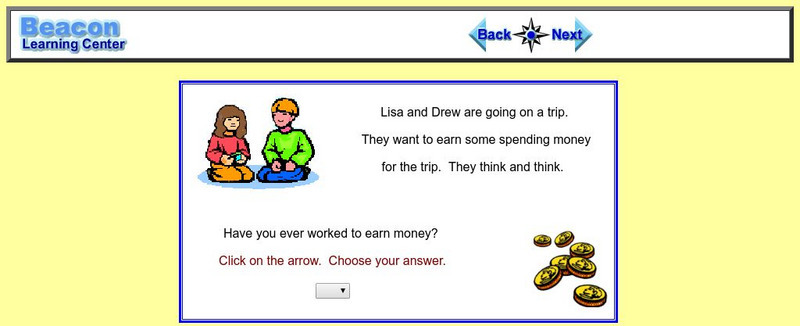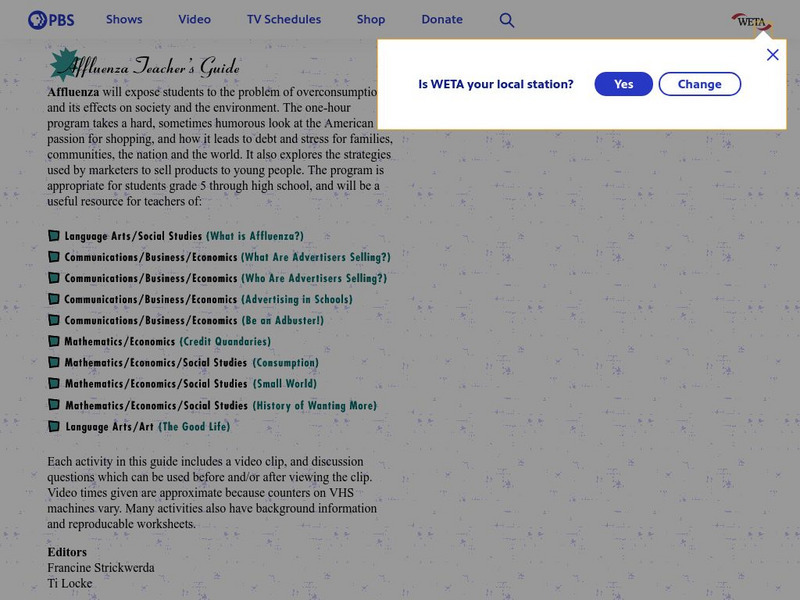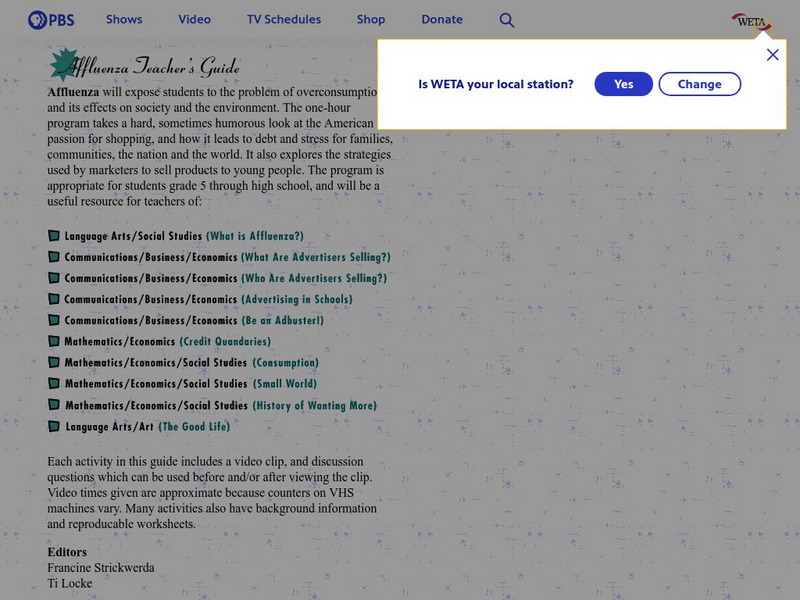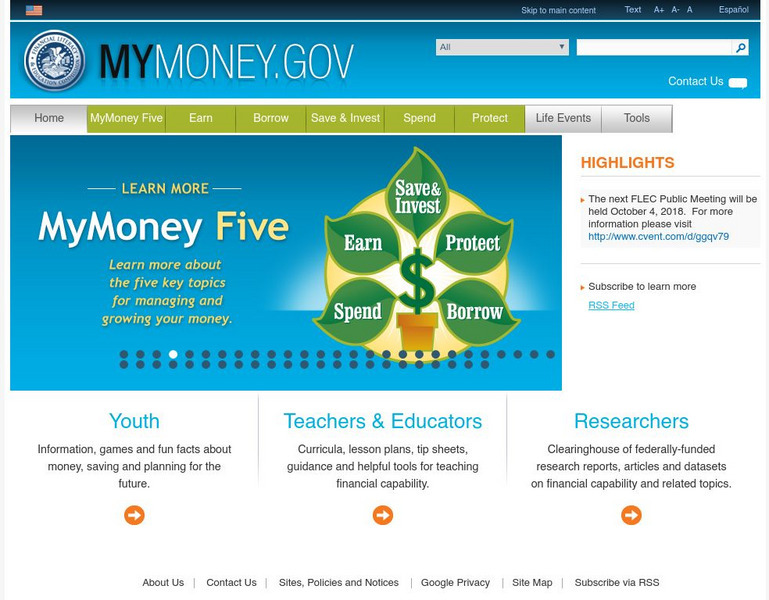Hi, what do you want to do?
Curated OER
In the Eyes of the Beholder
Students investigate the relationship between the consumers and producers with the role that the government plays in the free enterprise system.
Curated OER
Community Helpers Wheel
Young scholars play a game to reinforce the understanding that some community helpers are producers of goods, and some provide a service. Students identify community helpers and their jobs.
Curated OER
Statistics and Shopping
Students examine statistics and data analysis concepts from the practical questions that arise in everyday life.
BioEd Online
Bio Ed Online: Food Webs
Students construct possible food webs for six different ecosystems as they learn about the roles of producers, consumers, herbivores, carnivores and decomposers.
Edutopia
Edutopia: Goods and Services [Pdf]
A unit that teaches the difference between goods and services, the difference between producers and consumers, the difference between human, natural, and capital resources, and the difference between bartering/trading and buying/selling....
Annenberg Foundation
Annenberg Learner: The Habitable Planet: Ecosystems: Energy Flow Through
Detailed explanation of the processes by which energy flows through an ecosystem. Scroll down and open Section 3.
Other
Pde Sas: Relationships Among Organisms
In this lesson plan, students compare various types of relationships among organisms (i.e., biotic interactions). Students will: explain the roles of producers and consumers, and predators and prey in an ecosystem. Explain the levels of...
Other
The Habitable Planet Simulation
This activity is designed to accompany an interactive on the Annenberg Learner website. Students investigate the changes that take place in an ecosystem when they alter the organisms in a food web. As they work with the simulation, they...
Other
The Learning Partnership: Journey to El Yunque
In this set of learning modules, students examine the impact of hurricane weather on the El Yunque rainforest in Puerto Rico. They learn about hurricanes, producers, consumers, and the food chain, and how disruptions in organisms'...
NOAA
Noaa: Estuaries 101 Curriculum: Biodiversity in an Estuary
This activity introduces students to the amazing biodiversity of an estuarine environment, focusing on the habitats in the Rookery Bay National EstuarineResearch Reserve, Florida. They begin by exploring the estuary using Google Maps....
Council for Economic Education
Econ Ed Link: Car Loan Project
This lesson takes young scholars through the process of buying a car. A great real-life application that helps introduce students to all of the nuances associated with purchasing a car, such as interest rates, loan applications, and...
CK-12 Foundation
Ck 12: Episd Biology: Flow of Energy
[Free Registration/Login may be required to access all resource tools.] Students will study how energy flows through an ecosystem and learn about photoautotrophs and chemoautotrophs, the role of decomposers, and of consumers.
iCivics
I Civics: The Market Economy
This lesson teaches the basics about the market economy, including the relationships between consumers and producers, supply and demand, and profit and incentive. Students learn six traits of a market economy, compare the market economy...
China State Council Information Office and the China International Publishing Group
China.com: Statistical Data
A neat site which gives current economic data on the Chinese economy including figures on domestic trade which includes consumer goods. (Click on "Total Retail Sales" under "Domestic Trade")
Sheppard Software
Sheppard Software: Parts of the Food Chain: Producers, Consumers, Decomposers
Learn how scientists classify different types of organisms in an ecosystem or in a food chain by their role and function as either a producer, a consumer, or a decomposer. Then play a game that tests your understanding of these important...
Beacon Learning Center
Beacon Learning Center: Business Buddies
Help characters Lisa and Drew learn simple economic principles by choosing what goods they will need for their lemonade stand. Continue exploring economic concepts by determining the producers, services, and consumers associated with the...
PBS
Pbs Lesson Plan: What the World Consumes
These visual, easy-to-grasp lessons in world economics and consumerism features lessons and related videos in which students experience first-hand the economic dilemmas faced by other countries and are asked to examine their own values...
PBS
Pbs Lesson Plan: What the World Consumes
These visual, easy-to-grasp lessons in world economics and consumerism features lessons and related videos in which students experience first-hand the economic dilemmas faced by other countries and are asked to examine their own values...
PBS
Pbs (Affluenza): What Are Advertisers Selling
What are advertisers really selling? Are there hidden messages in ads? In this lesson, students explore the concept of persuasive advertising and evaluate ads directed at young consumers. A timely lesson that would generate interesting...
Other
My Money
This Federal Government website provides consumers with many resources and much information to help them to manage their money better. Topics include budgeting, taxes, saving, investing, retirement planning, credit, and checking...
Other
College of Du Page: Energy in an Ecosystem
Ecosystems contain two kinds of commodities: matter (nutrients) and energy. Nutrients cycle through the ecosystem, available for repeated use by organisms. These cycles of use and reuse are called biogeochemical cycles. Energy instead is...
Alabama Learning Exchange
Alex: Producers and Consumers
This lesson will teach the difference between producers and consumers. It provides an interactive way for students to get involved and actually become producers and consumers.
Council for Economic Education
Econ Ed Link: Every Penny Counts
Lesson that helps young scholars understand that people must make choices about the goods and services they purchase. Students recognize the prices indicate what people pay for goods and services, learn to compare prices, and understand...
Curated OER
National Park Service: Moon Crater Ecosystems Lesson Plan
This is a teacher's guide to a lesson on ecosystems. The objective is for the students to set up their own ecosystem and define the roles of producers, consumers and scavengers.








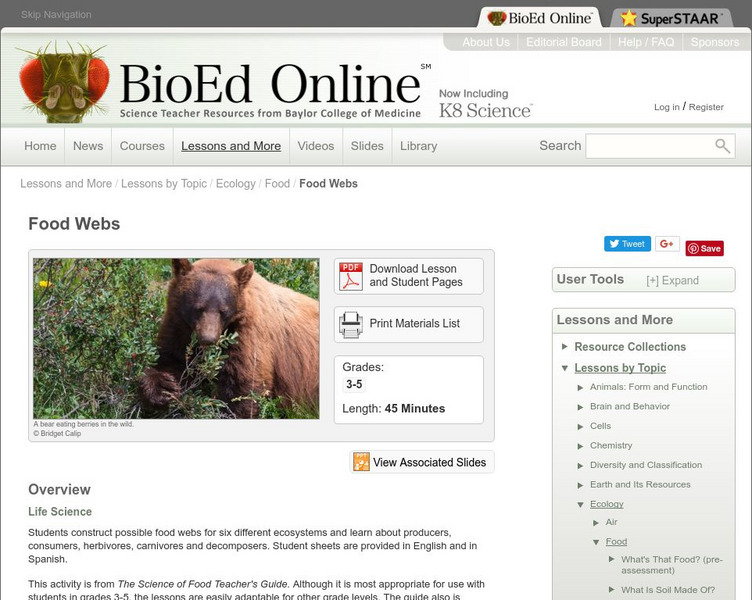
![Edutopia: Goods and Services [Pdf] Activity Edutopia: Goods and Services [Pdf] Activity](https://static.lp.lexp.cloud/images/attachment_defaults/resource/large/FPO-knovation.png)


